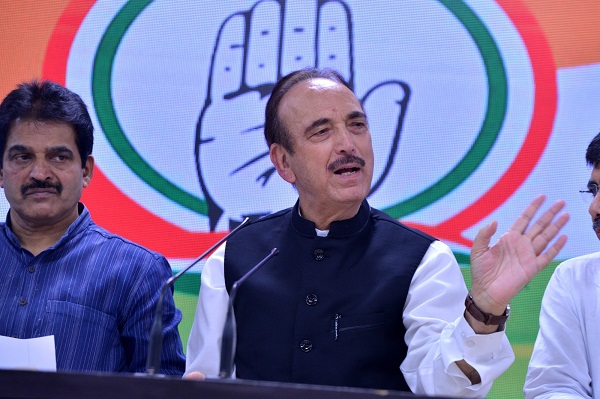New Delhi, The Supreme Court will deliver, on Friday, its judgement on the clutch of petitions, including by senior Congress leader Ghulam Nabi Azad, challenging the Centre’s decision to impose restrictions on the erstwhile state of Jammu and Kashmir after the August 5 revocation of provisions of Article 370, giving special status to the state.
A bench, headed by Justice N.V. Ramana and comprising Justices R. Subhash Reddy and B.R. Gavai, had reserved judgement on November 27 last year. Besides Azad, the court had heard the petitions filed by Anuradha Bhasin, Executive Editor of Kashmir Times, and few interveners, who challenged the imposition of restrictions on the valley.
The Supreme Court had said that “we are more concerned about the future”, as it reserved its verdict. Solicitor General Tushar Mehta consistently maintained that during the imposition of the restriction in the Jammu and Kashmir region, neither a single life was lost nor a single bullet was fired.
Senior advocate Kapil Sibal, representing Azad, said that restrictions have virtually abrogated the fundamental rights and paralyzed the lives of seven million people in the region. He contended that restrictions have been imposed under the garb of public tranquillity, public order and national security, but national security does not appear in the order imposing Section 144 of the Criminal Procedure Code in the region.
“This is not about the past, but it is about the future”, he submitted before the bench on the final day of the hearing.
Advocate Vrinda Grover, representing Kashmir Times Editor Anuradha Bhasin, contested the restrictions by terming them “unconstitutional” and consistently argued that the restrictions have to pass the test of proportionality.
The Jammu and Kashmir administration had contended before the court that normalcy was returning to Kashmir. Mehta, representing the administration, submitted data on the same in the top court. He insisted the curbs on the internet are justified, as cross-border forces are waiting to exploit this opportunity by pushing anti-India sentiments through various social media platforms.
Mehta told the court that terrorists’ and Pakistan’s Army official Twitter handles have been used to instigate people for “jihad”.
Sibal contested the shutdown of internet services have severe consequences on business, trade and heavily affect the common people in the region. He contended that abnormal conditions have been induced through restrictions. Saying that the state should not muzzle the voice of common people, he also highlighted instances of misuse of technology.










